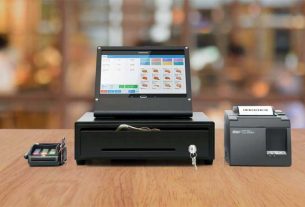Cyber security might seem a daunting challenge for any small business. Protecting your data and minimising downtime is imperative for a company to operate safely, efficiently and within budget. Hackers just love small business as they tend to have smaller budgets or fewer resources with which to keep ahead of the latest cyber technology.
Getting the right IT support is imperative for any small business and seeking IT support in London should be your first line of defence. In the meantime, these three key tips should help you significantly reduce the chances of becoming a victim of cybercrime.
- Back up your Data
Think about how much your business relies on important data such as customer details, payment details, orders and quotations. Imagine if all those details were suddenly lost… could you still operate without them?
Any business, regardless of its size should regularly back up important data. It’s not just cyber-attacks that backing up can protect data against but also other forms of risk such as fire, flood or physical theft. What is more is that if your data is backed up to date, you cannot be blackmailed by ransomware attacks. If you are backing up your data to a hard drive or USB stick, then also make sure they are suitably encrypted and always have an off-site solution.
- Install (and turn on) Anti-Virus Software
Prevention is always better than cure and every piece of protection you can add to your business is one less chance of being infiltrated by hackers. Malicious software (malware) can seriously harm your business and one of the most common forms of malware is viruses.
There are several free anti-virus options that come with popular operating systems such as Windows and OS. Once you have installed your anti-virus software on to all your office equipment it is important to ensure you keep it up to date. Your local IT solutions or it support provider can help you with technical assistance in these matters.
- Use Passwords to Protect your Data
Business laptops, computers and tablets will contain a lot of your personal information, critical business data and customer details. It is essential that this data is not made available to unauthorised users. Passwords, when correctly implemented, are a free and effective way of protecting your data from unauthorised users. If you are given the option to have a 2FA (two-factor authentication) for your accounts, then do so as this adds a lot of extra security for relatively little effort.
If you oversee IT within your business, make sure that employees are given the correct information on setting passwords. Make sure that each user has their own login information to gain access to the right system. Always ensure that password unlock is switched on and, unless security has been breached, avoid enforcing regular and unnecessary password changes
If you want to improve your cyber security further, it is a good idea to contact an IT Consultancy to outsource your cyber security requirements and get the best protection for your individual business needs.




